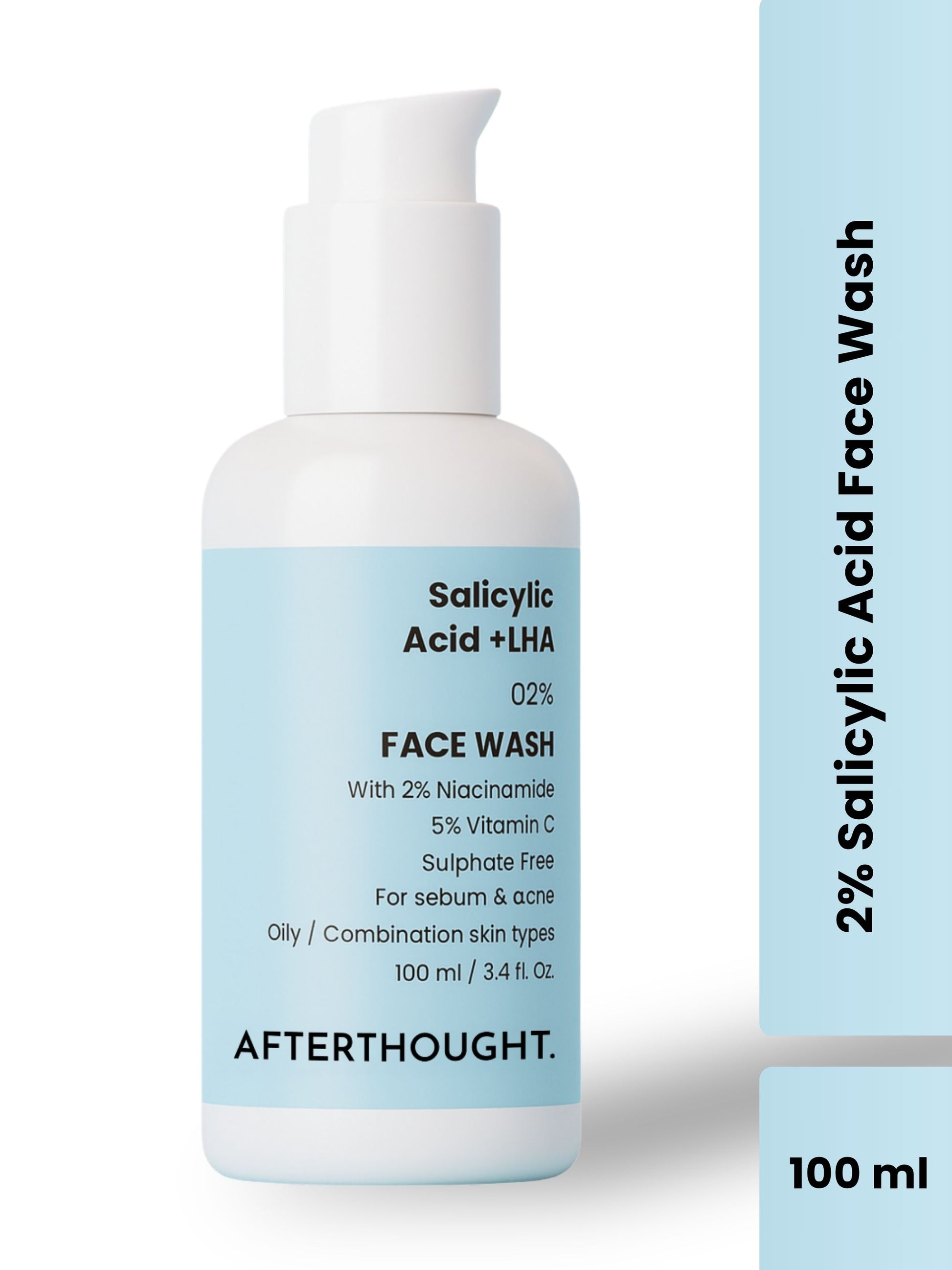Which Soap Is Good For Face Wash?
When it comes to skincare, choosing the right soap for your face is crucial. Unlike the skin on other parts of your body, facial skin is more delicate and prone to various issues such as acne, dryness, and irritation.
With the vast array of soaps available in the market, it can be overwhelming to find the one that best suits your skin type and concerns. This guide aims to help you navigate through the options and make an informed decision. Welcome to Afterthought.
Understanding Your Skin Type
Before diving into the types of soaps, it's essential to understand your skin type. Your skin type determines the kind of soap that will be most effective and least harmful.
- Normal Skin: Balanced skin that is neither too oily nor too dry. People with normal skin can generally use a wide range of soaps.
- Oily Skin: Characterized by an excess production of sebum, leading to a shiny appearance and a tendency to develop acne and blackheads.
- Dry Skin: Lacks moisture and often feels tight, rough, or flaky.
- Combination Skin: Features both oily and dry areas, typically with an oily T-zone (forehead, nose, and chin) and dry cheeks.
- Sensitive Skin: Prone to redness, irritation, and reactions to certain ingredients.
Ingredients to Look For
The ingredients in a soap play a significant role in how it affects your skin. Here are some key ingredients to look for based on your skin type:
For Normal Skin
- Glycerin: A natural humectant that helps retain moisture.
- Aloe Vera: Soothes and hydrates the skin.
For Oily Skin
- Salicylic Acid: Helps unclog pores and reduce acne.
- Tea Tree Oil: Known for its antibacterial properties.
- Charcoal: Absorbs excess oil and impurities.
For Dry Skin
- Shea Butter: Provides intense moisture and nourishment.
- Hyaluronic Acid: Helps retain moisture in the skin.
- Olive Oil: Rich in antioxidants and provides hydration.
For Combination Skin
- Jojoba Oil: Balances oil production and provides hydration.
- Green Tea Extract: Soothes the skin and provides antioxidants.
For Sensitive Skin
- Chamomile: Calms and soothes irritated skin.
- Calendula: Known for its healing and anti-inflammatory properties.
- Fragrance-Free Formulations: Reduces the risk of irritation.
Ingredients to Avoid
Certain ingredients can be harsh on the skin and should be avoided, especially for sensitive skin types:
- Sulfates: Such as Sodium Lauryl Sulfate (SLS) can strip the skin of its natural oils.
- Parabens: Preservatives that can cause irritation and long-term health concerns.
- Artificial Fragrances and Colors: Can lead to allergic reactions and irritation.
- Alcohol: Can be drying and irritating to the skin.
Types of Facial Soaps
Facial soaps come in various forms, each with its own set of benefits and drawbacks:
Bar Soaps
- Advantages: Typically last longer and are more environmentally friendly due to less packaging.
- Disadvantages: Can be drying if not formulated correctly, and may harbor bacteria if not stored properly.
Liquid Soaps
- Advantages: Easier to use and often formulated to be more hydrating.
- Disadvantages: Usually come in plastic packaging, which is less eco-friendly.
Foaming Soaps
- Advantages: Gentle on the skin and provide a luxurious lather.
- Disadvantages: May contain more surfactants, which can be drying.
Gel Soaps
- Advantages: Often formulated for oily and acne-prone skin types.
- Disadvantages: Can be too harsh for dry or sensitive skin.
Cream Soaps
- Advantages: Highly moisturizing and suitable for dry and sensitive skin.
- Disadvantages: May leave a residue if not rinsed thoroughly.
Choosing the Right Soap for Your Skin Concerns
Different skin concerns require different approaches:
- Acne-Prone Skin: Look for soaps with salicylic acid, tea tree oil, or benzoyl peroxide. These ingredients help to reduce acne and prevent future breakouts.
- Aging Skin: Opt for soaps with antioxidants like vitamin C and E, which help to combat free radicals and reduce signs of aging.
- Dull Skin: Exfoliating ingredients like glycolic acid can help to remove dead skin cells and reveal a brighter complexion.
- Sensitive Skin: Gentle, fragrance-free soaps with soothing ingredients like chamomile and calendula are ideal.
How to Use Facial Soap Effectively
Using facial soap correctly is just as important as choosing the right one:
- Wet Your Face: Use lukewarm water to wet your face. Hot water can strip your skin of its natural oils, while cold water might not effectively remove dirt and oils.
- Lather the Soap: If using a bar soap, rub it between your hands to create a lather. For liquid or gel soaps, pump a small amount onto your fingertips.
- Apply Gently: Massage the soap into your skin using circular motions. Avoid scrubbing too hard, especially in sensitive areas.
- Rinse Thoroughly: Ensure all soap is rinsed off completely to prevent residue build-up, which can lead to irritation or breakouts.
- Pat Dry: Use a clean towel to gently pat your face dry. Avoid rubbing, as this can cause irritation.
- Moisturize: Always follow up with a suitable moisturizer to keep your skin hydrated and healthy.
Conclusion
Choosing the right soap for your face is a personalized process that depends on your skin type, concerns, and preferences.
By understanding your skin's needs and the ingredients that can benefit it, you can make an informed decision that will help you achieve and maintain healthy, radiant skin.
Remember, consistency is key in any skincare routine, so give your chosen soap some time to show results before making any changes. Happy cleansing!
Check : 2% Salicylic Acid + 5% Vitamin C Face Wash & Cleanser









